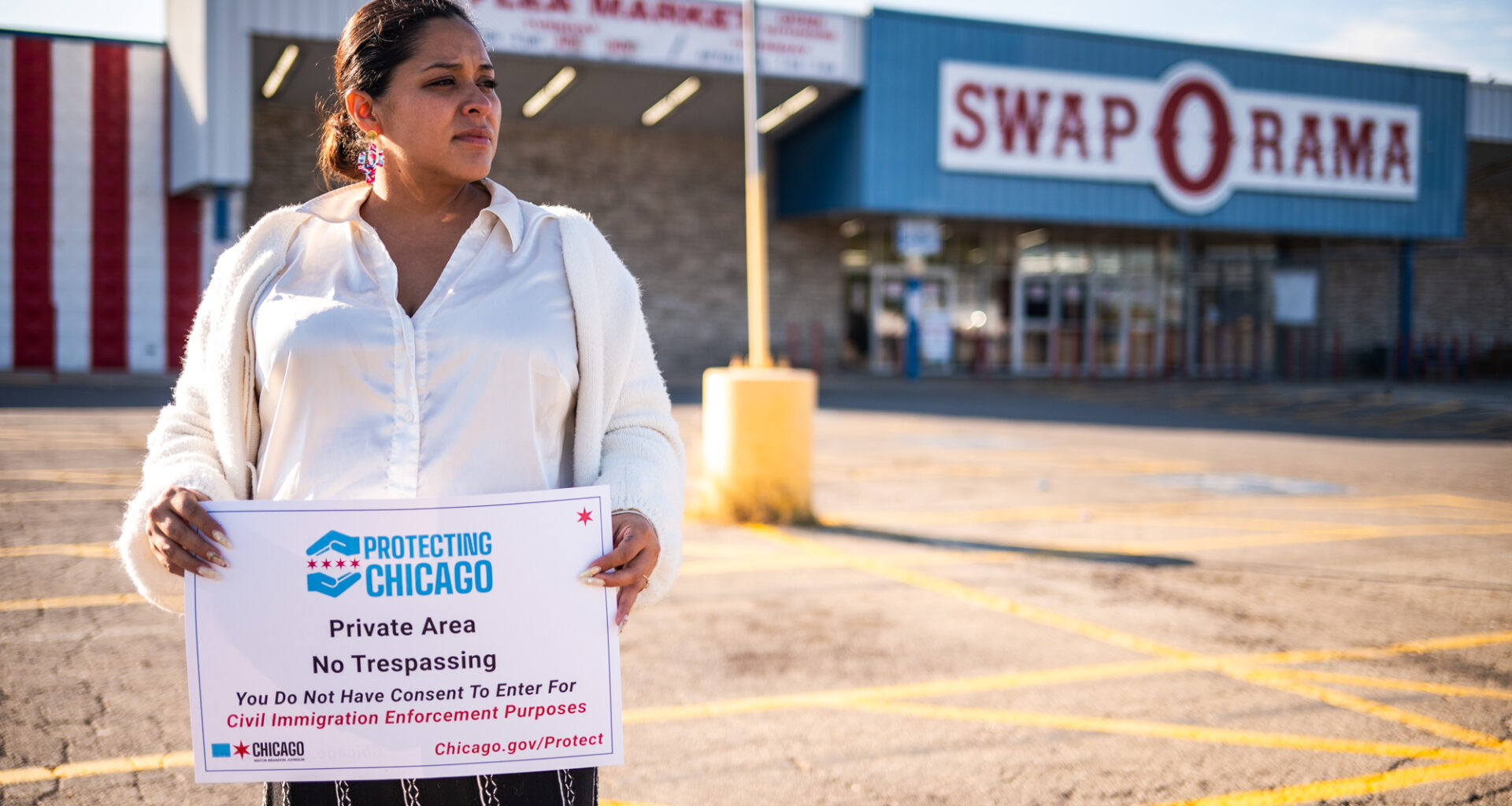CHICAGO — Federal immigration agents have been seen going into Chicago businesses to pull and drag people outside, where they’re taken away.
Some businesses have started locking their doors at all times — letting in customers one by one — as a safety measure. Others have put up signs that inform ICE and Border Patrol agents they are not welcome on the premises. Mayor Brandon Johnson has gone business to business in some neighborhoods to provide such signs.
But the laws that allow federal immigration agents into private businesses can be complex, with what’s legal dependent on if an agent has a warrant or if the agent is in a “public” part of the business.
Block Club Chicago spoke with Michelle García, ACLU of Illinois deputy legal director, and a Mayor’s Office representative about how and when federal agents can conduct official enforcement activities at businesses.
What are public and private spaces?
Public spaces in private businesses include any space that is open to the public, such as public dining rooms of restaurants, waiting rooms and lines for ordering when the business is open for the day. Federal immigration officers can enter these spaces without a warrant, García said.
Private spaces include areas that are only for staff, such as employee-only rooms and work spaces, García said. Other private spaces include areas that limit those who enter, such as businesses only open for paying customers or members. An officer would need a judicial warrant, one granted by a judge, to enter these areas.
“The Fourth Amendment protections are less in public spaces, and that is one of the reasons why ICE and Customs and Border Patrol have been doing arrests on the street,” García said. “The necessity for them to have a judicial warrant — not required in this space.”
The city is providing “no trespassing” signs to private businesses targeted at federal immigration agents. What do the signs do?
To press trespassing claims against someone, the individual should first be notified that they’re not welcome on the property, according to the Mayor’s Office. The sign serves that purpose by informing immigration agents that entering the private space could be trespassing.
But immigration officers can still enter the public spaces of these buildings.
Can federal immigration agents arrest someone without a warrant?
Warrantless arrests require that the federal agent determines that there is probable cause the individual is in the United States unlawfully and the individual is likely to flee the area, García said.
However, reasonable suspicion that a person is staying unlawfully in the United States isn’t enough to justify entering private spaces and detaining an individual, García said. A judicial warrant would be needed.
Meaning, without a warrant, federal immigration officers are not allowed to enter private spaces, like someone’s workplace, to conduct official business on suspicion, García said. They are allowed to enter these spaces if they have permission of the business owner or landlord, however.
In public spaces, these warrantless arrests are allowed in federal law, García said.
Can private businesses refuse entrance to ICE and Border Patrol for public spaces?
Private businesses with public spaces can tell immigration agents who have yet to enter that the business is closed or not open to the public, and they can ask agents to leave, García said.
García recommends business owners designate which areas are private and which are public and seek legal action if their rights are violated.
“I think the reality is people are very scared, and there may be a situation where ICE and Customs and Borders Patrol do not follow the Constitution, right?” Garcia said. “In those situations, we advise the private business owners … if they’re closed, if this is a private space, that they need to repeat and be very clear that they do not consent to what ICE is doing.”
Know Your Rights
Listen to the Block Club Chicago podcast:
